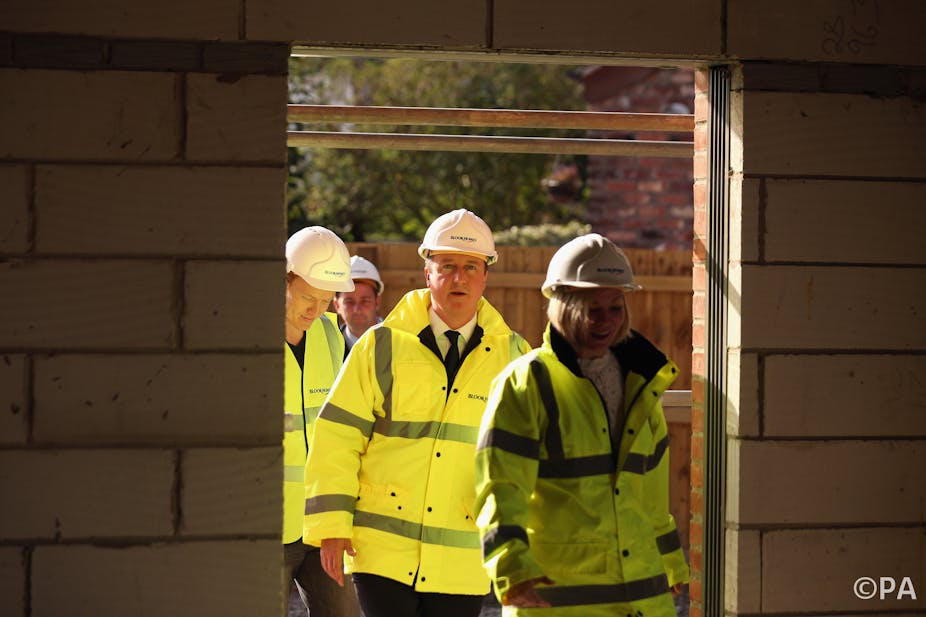Mortgage rates for the government’s Help to Buy scheme were announced yesterday amid the usual torrent of criticism for a policy that has very few friends. One Daily Telegraph commentator deemed the policy “nuts”, another in the Financial Times has called it “grotesque”.
Indeed, even the banks, normally so close to George Osborne on policy matters, seem to be slightly reticent. Until yesterday only Lloyds and RBS - both publicly owned - had signed up for the scheme. HSBC, Virgin Money and Aldermore have now joined but nonetheless the banks’ enthusiasm for the scheme has been distinctly underwhelming.
Banks are right to be worried by Help to Buy, and those of us outside the financial sector should be worried too. Indeed, it seems the height of irony that not long after an extensive parliamentary report recommended ways to make banks safer, the government is pushing through a policy that is likely to do just the opposite.
Help to Buy may make home ownership more accessible to first-time buyers with a small deposit. But it comes with a big hidden price tag: mortgage defaults, and banking instability.
Research suggests that the number one driver of mortgage default is the loan-to-value ratio of the mortgage. This means if the government is willing to increase the loan-to-value ratio of mortgages, then they also need to expect there will be an increasing number of people who default on their mortgages. So the policy might help people in home ownership, but it will also help them into unmanageable debt.
An increase in mortgage defaults will not just have an impact on homeowners themselves – it will affect the banks as well. When individuals default on their mortgages, the value of the assets held on a banks balance sheet deteriorate. This risk of default is a significant cost to the institution that needs to bare it.
In fact the high number of defaults on home loans was one of the central factors behind the collapse of many of the UK’s banks during the financial crisis. Flooding the market with risky loans is likely to pose a significant problem to the big banks – and as we know from past experience, this is a risk not just shouldered by investors, but also by the tax-payer.
As well as making banks riskier, the policy could slow down the whole economy. If these loans were used to buy new houses, it would have stoked the economy through encouraging home building. But using government subsidised loans to buy old housing stock will do nothing for the broader economy. Nor will it help to expand the pitiful housing stock in the UK. The only industries to benefit will be estate agents and solicitors.
Clear winners from this policy will be people who already own homes. They will find the price of their home increases. This is particularly good if you are older, thinking about downsizing and maybe moving to Spain to enjoy the sun. But if you are young family looking at expanding, housing will be more expensive. And if you are a first-time buyer, you will be able to borrow more, but you have to pay more.
The Help to Buy scheme might seem like a good idea on the surface, but even just a moment of thought shows it will create more problems than it solves. In the short term, the policy will solve the problem of first time buyers with access to home ownership. In the longer term, it is likely to fuel a housing bubble, increase mortgage defaults, further weaken bank balance sheets – and even act as a hand-brake on economic growth.
Help to Buy is a sign that the government has learnt nothing from the financial crisis.

